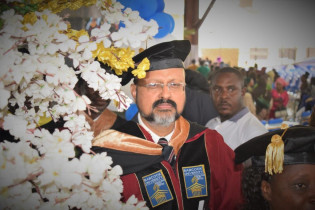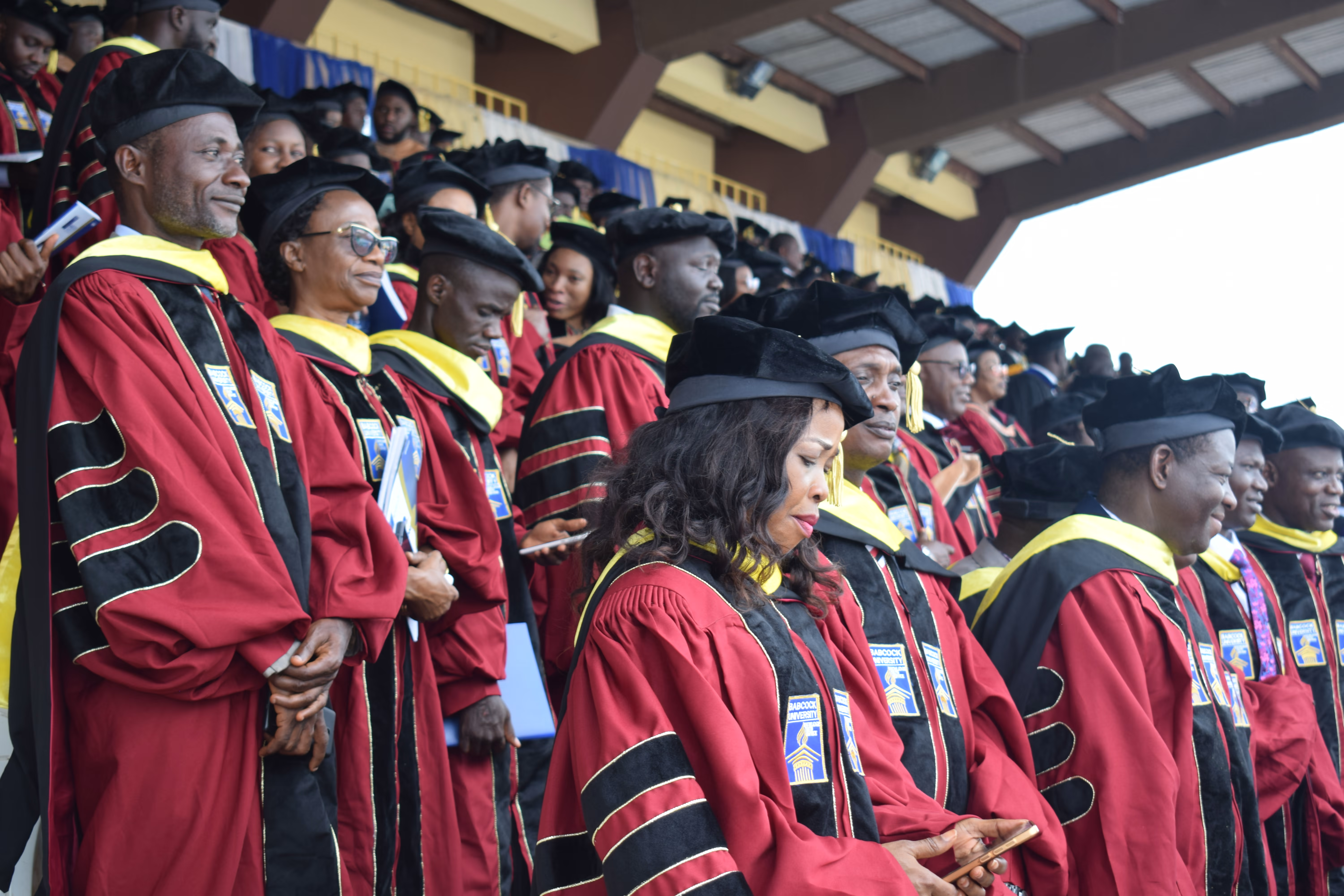
More About this Program
nformation and its effective communication and use are vital activities within all areas of government, commerce, industrial and social life. The growing demand for individuals with specialized skills to manage information effectively, coupled with global happening in the information field as well as the proliferation of information and communication technologies have been prominent factors driving the need for post-graduate studies in information resources management in Babcock University. The selectivity and screening of information have become very crucial in today’s information environment where information overload has become a constant. Our mission is to produce professionals with a firm grasp of the principles of information retrieval, information technology and management, as well as individuals who are cognizant of the changing information environment and able to function effectively in them.
Purpose, Aim/Objectives
In keeping with the mission of Babcock University, the goal of this programme is to train individuals for professional work in information service delivery in all areas of public, business, industrial and social life.
Specific objectives are to:
1. develop a critical awareness and understanding of the principles of librarianship and information service delivery;
2. develop skills in information identification, selection, organization, retrieval dissemination in paper, digital and multimedia formats;
3. develop ability to create, enhance and exploit knowledge assets in organizations;
4. train senior personnel to manage records in all formats ;
5. promote a critical awareness and professional skill in health information management;
6. develop professional skills in the selectivity and screening of information in the field of business management.
Bulletin would be made available
Visit the host departmentAdmissions Requirements
Admission Requirements
A. Admission shall be made by School of Postgraduate Studies on the recommendation of the Department/School Postgraduate Committee. Recommendation for admission will be based on candidates’ performance in the screening exercise (written/oral) to be conducted by the department. Applicants are also expected to write a two-paged proposal on their career aspiration.
Admission to the Master degree programme is open to graduates of Babcock University and of other universities recognized by the University Senate. Candidates should have a minimum of:
a) Second Class Lower Division in
i) Information Resources Management
ii) Any discipline outside Information Resources Management
b) Three years of work experience in information based organizations will be added advantages to applicants in all cases
c) Candidates who have a Second Class Lower Division from any discipline who have worked in industrial or commercial organizations (library or information section) for at least three years.
B. Mode of Admission
i. Regular Module
Admission into the regular semester module can be offered only to candidates who satisfy the College of Postgraduate Studies that they are either not in employment, or have been released by their employers to undertake full-time studies.
ii. Elongated Semester Module
Candidates maybe admitted into the program in the Elongated Semester module if they satisfy the requirements of the College of Postgraduate Studies. In this option, the equivalent of a regular semester is spread over a period of six months
Duration of the Program
Regular: Minimum - three (3) semesters; Maximum – five (5) semesters
Elongated: Minimum - four (4) semesters; Maximum – six (6) semesters
Industrial Attachment
In all Master level courses, students will undertake a three month placement in any organization
of their choice including library/information service centres.
They are advised to choose places that would enhance their proposed area of specialization. The
placement takes place between the end of second semester course work and the beginning of third semester. A satisfactory grade will be required for candidates to proceed to the third semester.
Graduation Requirements
Candidates will be required to pass at least 53 units of course work. They will also conduct and successfully defend a dissertation valued at 6 units, for a total of 57 units as shown in the breakdown below.
General Courses 4 units
Core Courses 41 units
Elective Courses 6 units
Dissertation 6 units
Total 57 units
In all cases, candidates must achieve at least 60% in each of the core courses and achieve an aggregate mark of 70% overall to be able to proceed to PhD.

Do Not Miss out on the Latest news And Events
In the realm of academics, knowledge becomes the guiding light that illuminates our paths towards success. Empowering students to become education heroes.


Doctorate (Ph.D)
Conditional admission to a PhD program is granted when the applicant, brings a Master’s degree in a related area or in a professional, rather than academic program, if this is permitted by the corresponding department. }
Learn More
Masters
If the M.Sc (or MA) level of proficiency is between 50% and 54% (or 3.00-3.49 CGPA on 5-point grade average), the applicant may be granted admission to the corresponding M.Phil, in which the minimum level of proficiency (60%) must be attained.
Apply Now
Postgraduate Diploma
If the M.Sc (or MA) level of proficiency is between 50% and 54% (or 3.00-3.49 CGPA on 5-point grade average), the applicant may be granted admission to the corresponding M.Phil, in which the minimum level of proficiency (60%) must be attained.
Apply Now
Contact Us
Send us a Mail
You can send emails to us 24/7 and we will be available to respond

